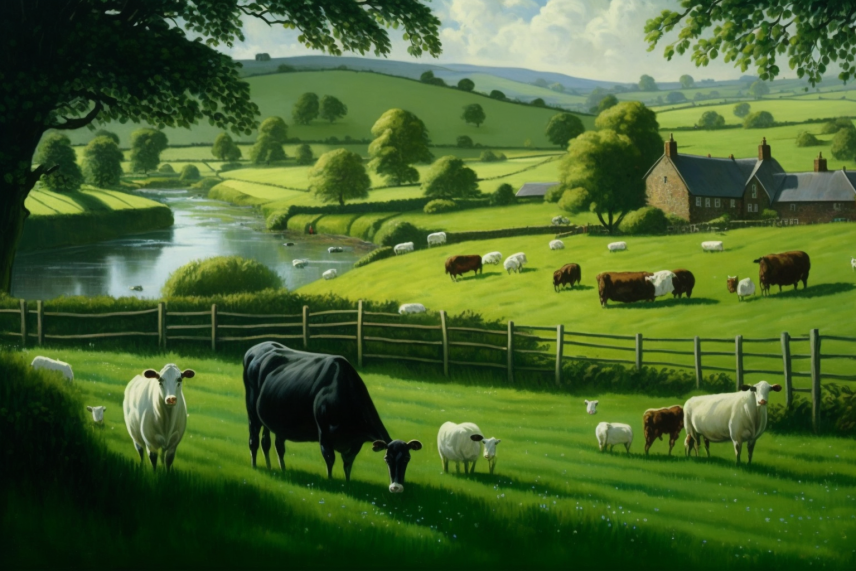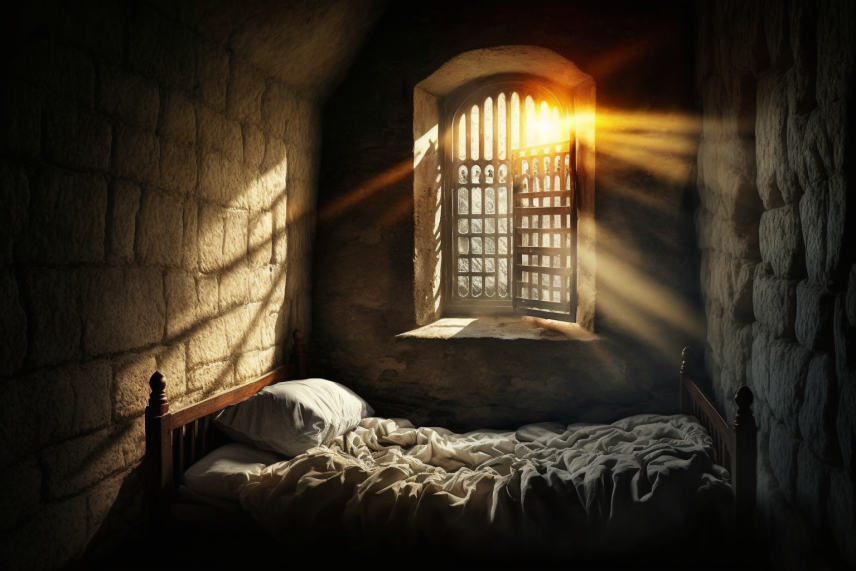
by Holly Jahangiri | Apr 27, 2023
Within a Shell
I plucked one perfect, mottled sea shell
From the crushed bones of its ancestors; their grit
The sunkissed sand beneath my feet
Soaked through, with ocean's briny tang, and hard,
Unlike the powdery, pillowed dunes
That can't remember what it's like to feel the sea.
I wondered at its journey, how it ended at the sea
I held within my hand, a home, now just a shell
How many years from sea to shore to dunes -
Who says the spineless creatures don't have grit?
Whenever tempted by the thought that life is hard
I think how hard it must've been - from fins to feet.
The Little Mermaid envies me my feet,
But happily, I would slip into the sea.
Discernment of His master plan is hard
But God and Science aren't at war - the shell
That landed at my feet, rubbed smooth by grit
Divine, tells timeless stories, buried in the dunes.
A thousand million years of tales lie hidden in the dunes
As happy children dig, build castles in the sand, and bury tiny feet
Their soft skin damp, their chubby legs adorned with grit
This moment's all they know of the eternal sea
Experience, tight-clasped secret held within its shell
At least today's too kind to tell them "Life is hard."
Some day, too soon they'll learn that lesson: that it's hard -
That castles made of sand must crumble and return to dunes.
But as the children venture from the safety of their shells
Exploring, till they find the chosen path for righteous feet,
The path that leads from sea to shining sea
Will give them strength of character, and grit.
Rough edges will be polished smooth by ever-finer grit
As youth meets all the challenges of life, however hard
And in old age, reflecting by the ever-changing sea
They'll pluck that mottled, perfect shell from sparkling dunes
Unrushed, they'll rise, to rinse their gnarled, sandy feet,
And throw it, heavenward, to home, that shell.
Relentless, the eternal sea will tumble hard against the grit - that shell
Now one with all the other grains of sand will keep us grounded, steady, on our feet,
So one day, we can join our bones and stories underneath the sunkissed dunes.
— Holly Jahangiri
Author’s note: Lord help me, I think I’ve found a form more onerous than the villanelle. At least when trying, near midnight, to finish it.
Today’s Poet
I learned this week that my application to the Summer Writers Institute at the University of St. Thomas was accepted.
[P]articipants will meet at UST and hear from distinguished writers of poetry and fiction, and engage in seminars on art and beauty, Catholicism and literature, and the craft of writing. They will also get counsel and help with their own work in lively creative writing workshops.
Between the evening public readings with masters of the art, the intense seminars and workshops, and the good company at meals, participants will experience that most elusive thing: a literary community intended to deepen and strengthen their own work while also welcoming them into the great literary and cultural tradition of the Church.
So, in honor of that, today’s featured poet is James Matthew Wilson, who will be leading the poetry workshops. Read more about him here.
On a box of rainbow sprinkles | The New Criterion
Poetry – JAMES MATTHEW WILSON
April is National Poetry Month. This year marks its 27th year. NaPoWriMo – 30 days of writing poems – is poets’ answer to National Novel Writing Month (NaNoWriMo).
This coincides with the A to Z Blogging Challenge, now celebrating its 13th anniversary. Some participants choose a theme; others wing it. Doesn’t matter! The real challenge is to build a practice of writing daily. I think I stuck with it…once. You can see the list of participants – I’m sure they’d love it if you’d visit and comment on their blogs.
This month, my goal is to:
- Write a poem a day and share it – uncurated – here; and
- Highlight some poets you may be unfamiliar with.
I encourage you to click the links to read about them and their work. I plan to choose a diverse array of classical and contemporary poets – indigenous poets, Black poets, women poets, LGBTQ poets – that challenge us to see the world differently while also tapping into universal themes and emotions.
Remember, too, that comments and conversation are always welcome here. (Spammers, on the other hand, will be tossed into the moat or mocked, so before you leave an irrelevant comment or drop a link, consider that it’s fair game!)

by Holly Jahangiri | Apr 26, 2023
The Reaping
As Spring gives way to Summer’s radiant glow
That warms the world in melting heat
We lose our sense of Winter’s coming snow.
Spring’s fledglings, fawns, and kits all grow
The calf gives up its mother’s teat
As Spring gives way to Summer’s radiant glow
Content with grassy fields, the cattle graze and low
Newly shorn, sheep softly bleat
We lose our sense of Winter’s coming snow.
At Winter’s end, we bid the darkness “Go!”
And soon, its icy chill retreats
As Spring gives way to Summer’s radiant glow
At last, all Fall to the conquering foe –
In stunning self-deceit
We lose our sense of Winter’s coming snow.
Smiling, we pretend we do not know
What end must come, when life’s complete.
As Spring gives way to Summer’s radiant glow
We lose our sense of Winter’s coming snow.
— Holly Jahangiri
Today’s Poet
Paul Verlaine – a French poet of the 19th century whose poem, Chanson d’automne, was used in WW II.
In preparation for Operation Overlord, the BBC‘s Radio Londres had signaled to the French Resistance with the opening lines of the 1866 Verlaine poem “Chanson d’Automne” were to indicate the start of D-Day operations under the command of the Special Operations Executive. The first three lines of the poem, “Les sanglots longs / des violons / de l’automne” (“Long sobs of autumn violins”), would mean that Operation Overlord was to start within two weeks. These lines were broadcast on 1 June 1944. The next set of lines, “Blessent mon coeur / d’une langueur / monotone” (“wound my heart with a monotonous languor”), meant that it would start within 48 hours and that the resistance should begin sabotage operations, especially on the French railroad system; these lines were broadcast on 5 June at 23:15.[3][4][5][6]
Chanson d’automne – Wikipedia
It is time for the letter “V” – and I would be remiss if I failed to mention the villainous Villanelle. Do note that it was a mistake to think it a fixed form; originally, villanelle merely meant a country dance. It might as well have been the Paradelle.
April is National Poetry Month. This year marks its 27th year. NaPoWriMo – 30 days of writing poems – is poets’ answer to National Novel Writing Month (NaNoWriMo).
This coincides with the A to Z Blogging Challenge, now celebrating its 13th anniversary. Some participants choose a theme; others wing it. Doesn’t matter! The real challenge is to build a practice of writing daily. I think I stuck with it…once. You can see the list of participants – I’m sure they’d love it if you’d visit and comment on their blogs.
This month, my goal is to:
- Write a poem a day and share it – uncurated – here; and
- Highlight some poets you may be unfamiliar with.
I encourage you to click the links to read about them and their work. I plan to choose a diverse array of classical and contemporary poets – indigenous poets, Black poets, women poets, LGBTQ poets – that challenge us to see the world differently while also tapping into universal themes and emotions.
Remember, too, that comments and conversation are always welcome here. (Spammers, on the other hand, will be tossed into the moat or mocked, so before you leave an irrelevant comment or drop a link, consider that it’s fair game!)

by Holly Jahangiri | Apr 25, 2023
Usurped Emotions
Anger is the Queen of Misrule
Until she's denied -
Shoved aside -
Diminished,
Like a distressing damsel
Overcome, but not becalmed.
Impotent Rage, dark
Grief will serve
Her only companions.
Locked in her stoic tower cell -
Stubbornly, she swallows the key,
Eats her feelings,
Thinking their power
Usurped. Denial
Her warden; Contentment
Her lady's maid.
Joy pours through open windows
Drenching cold stone
In golden sunfire.
Anger would draw the curtains,
If she could. Hang tapestries
Against the dawning light.
She smothers Hope
Lets it languish
Drowning, in a tub
Of gray and tepid water.
Persistent Joy flashes warm:
Pink, orange, and yellow roses
Cast at the Queen's bare feet
Before the purpling dusk.
Joy launches an assault -
Demands white bedsheets;
Till Anger, laughing
Surrenders, at last
To happy Dreams.
Unfeeling
Dammed up for half a life,
Denied, so many salty drops
Uncried refuse to flow.
They called her cold -
Unfeeling. Unaware
The faintly beating heart
Still beat within
Though dried up, brittle
As her mother's fragile
Skin; a parchment
Page unwritten
Waiting to be placed
Upon an empty shelf
Forgotten
As the feelings
Of a hollow vessel.
Today’s Poet
Wislawa Szymborska – a Polish poet, essayist, translator, and recipient of the 1996 Nobel Prize in Literature “for poetry that with ironic precision allows the historical and biological context to come to light in fragments of human reality.”
Wisława Szymborska – Poetry – NobelPrize.org
April is National Poetry Month. This year marks its 27th year. NaPoWriMo – 30 days of writing poems – is poets’ answer to National Novel Writing Month (NaNoWriMo).
This coincides with the A to Z Blogging Challenge, now celebrating its 13th anniversary. Some participants choose a theme; others wing it. Doesn’t matter! The real challenge is to build a practice of writing daily. I think I stuck with it…once. You can see the list of participants – I’m sure they’d love it if you’d visit and comment on their blogs.
This month, my goal is to:
- Write a poem a day and share it – uncurated – here; and
- Highlight some poets you may be unfamiliar with.
I encourage you to click the links to read about them and their work. I plan to choose a diverse array of classical and contemporary poets – indigenous poets, Black poets, women poets, LGBTQ poets – that challenge us to see the world differently while also tapping into universal themes and emotions.
Remember, too, that comments and conversation are always welcome here. (Spammers, on the other hand, will be tossed into the moat or mocked, so before you leave an irrelevant comment or drop a link, consider that it’s fair game!)

by Holly Jahangiri | Apr 22, 2023
Mayhaps the ash-faced Ethel Wynn,
Given yogh-urt, instead of her gin,
Spluttered, outraged, and cried,
"This, I cannot abide -
"Ol' Thorn's hand on my bum yet again!"
A sweet-faced Tironian boy bᵹ
Would have liked to be named &
But their fans couldn't say it
So they chose to belay it
Lest all of their ᵹigs should be banned.
Just a little limerick or two for my friend, Mitchell Allen, to help him remember the names of some of the lost letters of the English alphabet.
Today’s Poets
Edward Lear, a nineteenth century British poet, is perhaps the most well-known writer of limericks–though he did not originate this poetic form. As a nod to the genre “literary nonsense,” Lear published a collection of 117 limericks in 1846, entitled A Book of Nonsense1.
Other famous writers of limericks include Rudyard Kipling, Dr. Seuss (who employed anapestic limerick meter in much of his humorous verse), Algernon Charles Swinburne, W. H. Auden, William Shakespeare, Hilaire Belloc, Lewis Carroll and Anonymous (including the poets of Mother Goose)2.
Thanks to Bing for providing a brief reference to some “famous limerick writers.” Hillaire Belloc wrote some of my childhood favorites.
April is National Poetry Month. This year marks its 27th year. NaPoWriMo – 30 days of writing poems – is poets’ answer to National Novel Writing Month (NaNoWriMo).
This coincides with the A to Z Blogging Challenge, now celebrating its 13th anniversary. Some participants choose a theme; others wing it. Doesn’t matter! The real challenge is to build a practice of writing daily. I think I stuck with it…once. You can see the list of participants – I’m sure they’d love it if you’d visit and comment on their blogs.
This month, my goal is to:
- Write a poem a day and share it – uncurated – here; and
- Highlight some poets you may be unfamiliar with.
I encourage you to click the links to read about them and their work. I plan to choose a diverse array of classical and contemporary poets – indigenous poets, Black poets, women poets, LGBTQ poets – that challenge us to see the world differently while also tapping into universal themes and emotions.
Remember, too, that comments and conversation are always welcome here. (Spammers, on the other hand, will be tossed into the moat or mocked, so before you leave an irrelevant comment or drop a link, consider that it’s fair game!)

by Holly Jahangiri | Apr 21, 2023
Hard to be a moderate moderator
Hard to gauge the scale
In a super-sized sociopathic
Algorithm-driven
Hate-heated, bot-based
Boiler room;
Just another passing platform
Soft-swooshing, hot-air-hissing
Rusty, rattling
Fraught follow-trains
Crashing - Who doesn't love
A good train wreck?
Powerful loco motives
Crazy-clattering
Off rusted,
Busted rails.
Todays Poet
Sonia Sanchez – an American poet, writer, and professor. Sanchez was a leading writer in the Black Arts Movement who has written numerous books of poetry, short stories, critical essays, plays, and children’s books. Read more here.
Haiku and Tanka for Harriet Tubman by Sonia Sanchez | Poetry Magazine (poetryfoundation.org)
April is National Poetry Month. This year marks its 27th year. NaPoWriMo – 30 days of writing poems – is poets’ answer to National Novel Writing Month (NaNoWriMo).
This coincides with the A to Z Blogging Challenge, now celebrating its 13th anniversary. Some participants choose a theme; others wing it. Doesn’t matter! The real challenge is to build a practice of writing daily. I think I stuck with it…once. You can see the list of participants – I’m sure they’d love it if you’d visit and comment on their blogs.
This month, my goal is to:
- Write a poem a day and share it – uncurated – here; and
- Highlight some poets you may be unfamiliar with.
I encourage you to click the links to read about them and their work. I plan to choose a diverse array of classical and contemporary poets – indigenous poets, Black poets, women poets, LGBTQ poets – that challenge us to see the world differently while also tapping into universal themes and emotions.
Remember, too, that comments and conversation are always welcome here. (Spammers, on the other hand, will be tossed into the moat or mocked, so before you leave an irrelevant comment or drop a link, consider that it’s fair game!)





